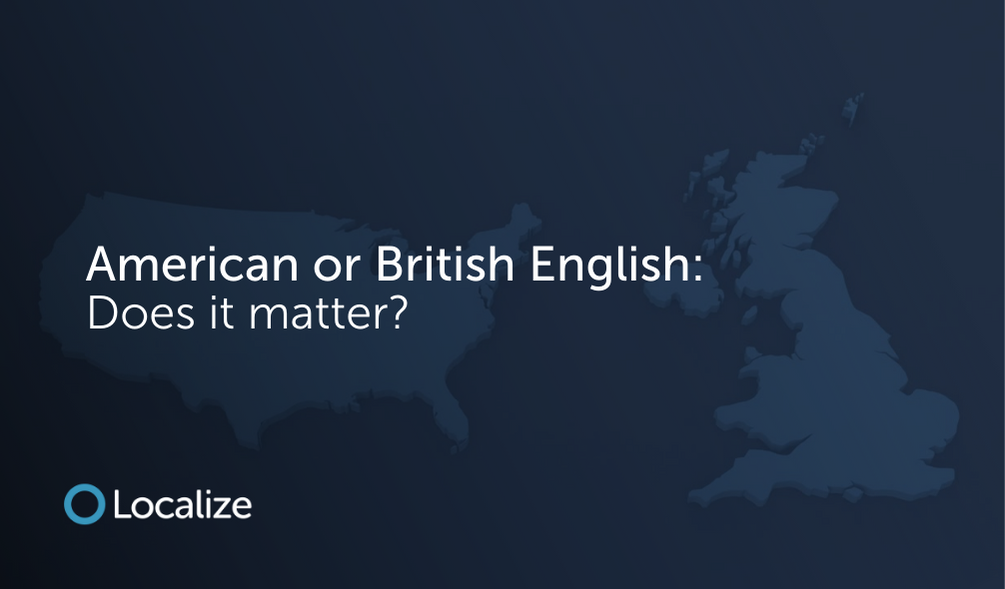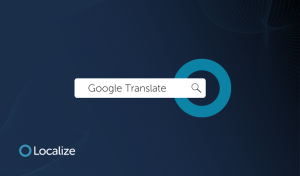George Bernard Shaw once said that the United Kingdom and the United States of America are two countries separated by a common language. While American tourists visiting the UK may breathe a sigh of relief that there’s no language barrier, British English and American English have a surprising number of divergences.
If you’re thinking of expanding your business “across the pond,” you need to realize that there are plenty of differences between these two versions of English.
Translating US English to UK English
Here are some things to remember when you need to translate US English to UK English, and vice versa.
English Spelling
These two variants of English have a lot of spelling differences. If you use American spelling for your British marketing content, your readers might think it’s riddled with typos. It’s worth localizing your content by “anglicising” your spelling. Correct spelling is crucial for good search engine optimization (SEO) in your marketing campaigns.
Here are some examples of British spelling conventions:
-
- Use -ise instead of -ize:
- realise
- organise
- immunise
- localise
- Use -our instead of -or:
- colour
- flavour
- neighbour
- Use –ue:
- dialogue
- analogue
- monologue
- Don’t forget -re instead of -er:
- litre
- centre
- theatre
- Use -ise instead of -ize:
Politeness
British English tends to avoid bluntness and directness. Because of this, Brits in the US often appear hesitant since they avoid saying precisely what they mean. On the other hand, Americans in the UK are sometimes stereotyped as rude due to their directness.
Here are two situations where standards for politeness vary:
-
- Americans might say, “He’s been taken into custody,” while Brits would say, “He’s helping the police with their enquiries.”
- To the British, ending a request with the word “please,” is seen as common politeness. But Americans might interpret the word “please” as too bossy or formal.
Business Terms
When doing business, British English speakers tend to preface their correspondence with “Maybe,” “I believe,” or “Perhaps,” to avoid sounding bossy or demanding, even when their communication is meant to be followed without question. However, in a US working environment, this way of phrasing could be perceived as weak, and the same message will be received more as a suggestion than a requirement.
Here are just a few examples of common terms that sound a bit different in British English:
-
- You don’t get a pay raise; you get a pay rise.
- You don’t get offered flex time at your job; you receive flexi-time.
- You don’t order a custom-made suit; you get it bespoke.
- You don’t say “sorry” to indicate an apology; you say it as an interjection.
Food-Based Words
If you’re in the food industry, you need to know the differences between the way the two English languages refer to what we eat.
Examples:
-
- In British English, French fries are referred to as chips, and American chips are called crisps.
- Similarly, what Americans refer to as cookies are called biscuits.
- Tea in American English means a cup of tea, while in British English, tea refers to the Afternoon Tea – a mini-meal including sandwiches, cakes, scones, and tea.
Clothing Terms
US businesses in the clothing industry can get into trouble with certain words and phrases when marketing in the UK.
Here are a few examples:
-
- A sweater in the US is a jumper in the UK.
- A US jumper is what a Brit would call a pinafore dress.
- In the US, a pinafore is called an apron.
- If you mention pants in the UK, your audience would likely think of underwear. If you don’t mean undergarments, you would need to say “trousers” instead.
Transportation Terms
In the US, a trolley transports a group of people, but in the UK, it merely transports food – it’s a kind of large tray on wheels. Many transportation terms don’t have the same names in the UK as in the US.
Examples:
-
- An American truck is a British “lorry.”
- An American sedan is a British “saloon.”
- What Americans refer to as a truck is a “lorry” in the UK.
- The trunk and the hood of an American car would be called the “boot” and the “bonnet” in the UK.
- US gasoline is called “petrol” in Britain.
- American pavement means “sidewalk” in the UK.
- A highway in the USA would be called a “motorway” in Britain
- Americans refer to underground trains as subways, but Brits refer to theirs as an “underground railway”
Strange Sounds
British English includes thousands of words and phrases that might sound a bit weird to American ears.
Here’s a small sampling of British words and their American equivalents.
-
- holidays (vacations)
- university (college)
- in hospital (in the hospital)
- car hire (car rental)
- car park (parking lot)
- pushchair (stroller)
- torch (flashlight)
- lift (elevator)
Idioms
UK English is rich in fascinating expressions. If you want your content to sound authentically British, you’ll need to adjust your vernacular. Sometimes it’s just a matter of swapping out a word or two. For example, you touch wood for good luck instead of knocking on it.
Here are a few more intriguing ones:
-
- It fell off the back of a lorry (it’s stolen)
- For donkey’s years (for a really long time)
- It’s not cricket (it’s not right)
- On the blink (it’s failing)
- Gone pear-shaped (gone all wrong)
Grammatical Differences
Localization in the UK means taking notice of the different grammar rules in the two countries.
Examples:
-
- Verb Tense and Usage
The usage of ‘shall’ and ‘will’ is different in British and American English.- A Brit says: I shall be there tomorrow.
- An American says: I will be there tomorrow.
- Collective Nouns
When translating into British English, collective nouns can be different. In the American context, a collective is seen as one. But a collective is still regarded as a group of individuals in British English.- Brits might say: “The band are playing their best song tonight!”
- Americans would say: “The band is playing their best song tonight!”
- Verb Tense and Usage
Other Factors
Localization in the UK also means paying attention to other cultural differences. This includes currency, taxes, laws, postal addresses, and more.
For example, take a look at these British terms:
-
- postcode (zip code)
- flat (apartment)
- surname (last name)
Why English Localization Matters
There are countless differences between the American and British forms of English. Although you could easily plug your American content into Google Translate or Grammarly to swap it to British spelling, you might miss cultural nuances and make big errors. For best results, you should hire a professional translator or LSP (language service provider) to review your English text.
Localize is a translation management system (TMS) that can help you achieve a high level of local British flair. Localize integrates with popular LSPs and supports translation with built-in glossaries, style guides, and terminology management.
Contact us today to try Localize.







